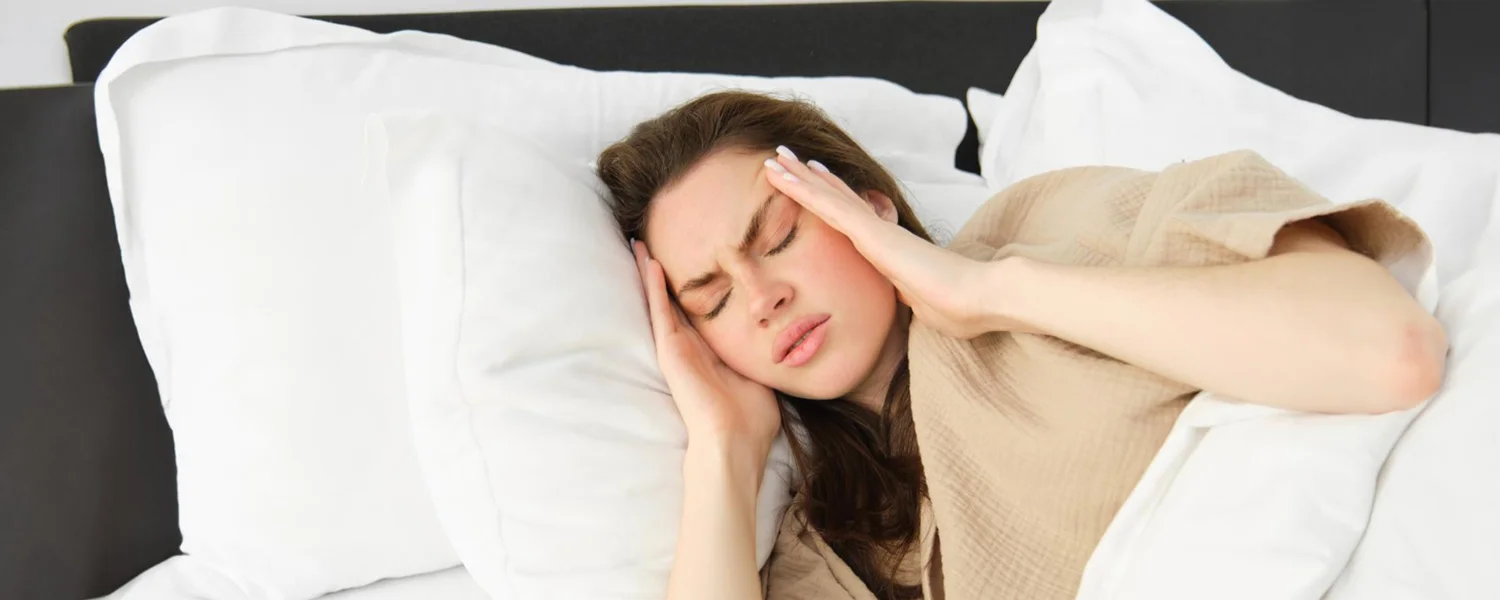
The Causes of Insomnia and Sleep Deprivation
Insomnia and sleep deprivation can result from various factors, including lifestyle habits, medical conditions, and psychological factors:
Stress and Anxiety: Worrying about work, relationships, or other life challenges can make it difficult to relax and fall asleep. Overthinking or excessive stress often causes the mind to stay active, preventing restful sleep.
Poor Sleep Environment: A noisy, uncomfortable, or overstimulating environment can hinder the ability to fall asleep. Light, temperature, and electronic distractions like smartphones can disrupt the natural sleep cycle.
Caffeine, Alcohol, and Diet: Consuming caffeine or nicotine, especially in the evening, can interfere with sleep. While alcohol may initially make you feel drowsy, it disrupts the sleep cycle, leading to poor-quality sleep.
Irregular Sleep Schedules: Shift work, late-night studying, or frequently changing sleep patterns can throw off the body’s internal clock, leading to insomnia or sleep deprivation.
Medical Conditions: Conditions such as sleep apnea, restless leg syndrome, chronic pain, or respiratory issues can lead to sleep disturbances. Mental health conditions like depression and anxiety often exacerbate sleep problems.
The Effects of Sleep Deprivation
Chronic sleep deprivation can have serious effects on both the body and mind. As it continues, these effects become more noticeable. It impairs cognitive functions, making it difficult to concentrate, remember things, and make decisions, which can lead to mistakes or accidents. Sleep deprivation also affects mood, causing irritability, mood swings, and even depression, as sleep is essential for emotional regulation. Additionally, a lack of sleep weakens the immune system, leaving the body more vulnerable to illness. Long-term sleep deprivation is linked to major health risks like heart disease, high blood pressure, diabetes, and obesity. It can also increase stress levels, creating a cycle where stress worsens sleep deprivation, and lack of sleep raises stress and anxiety.
Strategies for Managing Insomnia and Sleep Deprivation
Addressing insomnia and sleep deprivation requires adopting healthier sleep habits and identifying the root causes. Here are practical strategies to help improve sleep quality:
1. Create a Sleep Routine Going to bed and waking up at the same time every day helps regulate your body’s internal clock. Even on weekends, try to maintain this schedule to establish consistent sleep patterns.
2. Optimize Your Sleep Environment Your bedroom should be a sanctuary for sleep. Ensure it's dark, quiet, and at a comfortable temperature. Use blackout curtains, earplugs, or white noise machines if needed, and keep electronics out of the bedroom.
3. Limit Stimulants and Large Meals Avoid consuming caffeine, nicotine, and other stimulants in the late afternoon or evening. Additionally, avoid heavy or spicy meals before bed, as they can cause discomfort and indigestion that disrupts sleep.
4. Manage Stress and Anxiety Practice relaxation techniques such as deep breathing, meditation, or progressive muscle relaxation to help calm your mind before bed. Writing down your worries or thoughts in a journal can help clear your mind and reduce anxiety before sleep.
5. Exercise Regularly Regular physical activity can help promote better sleep, but be sure to avoid exercising close to bedtime as it may energize you instead. Aim to complete workouts earlier in the day.
6. Limit Screen Time The blue light emitted by smartphones, tablets, and computers can interfere with your body’s production of melatonin, the hormone that regulates sleep. Turn off screens at least an hour before bed, or use blue light filters if you must use devices.
7. Seek Professional Help If insomnia persists despite these efforts, it may be necessary to seek help from a sleep specialist or healthcare provider. Cognitive-behavioral therapy for insomnia (CBT-I) is an effective treatment that can help identify the underlying causes of sleep issues and develop personalized strategies for better sleep.
When to Seek Help
While occasional sleeplessness is common, chronic insomnia or prolonged sleep deprivation can be damaging to your health. If you find that your sleep problems are affecting your daily life, work, or relationships, it's time to seek professional support. A sleep specialist can conduct assessments, recommend treatments, or identify underlying conditions that may be causing the issue.
At Dr. Zahraa, we understand how sleep issues can affect both mental and physical health. We specialize in helping children with developmental disabilities and their families develop healthy sleep habits and manage stress. Schedule an appointment today and let us help you or your loved ones achieve better sleep and overall well-being.
Related Blog
14 Sep 2024 | Modern Life and Relationships
Smart Devices and Their Impact on Children
In today’s digital world, smart devices like smartphones, tablets, and laptops...
15 Sep 2024 | Modern Life and Relationships
Insomnia and Sleep Deprivation: Impact on Your Health
Sleep is essential for maintaining overall health and well-being, but many peopl...
15 Sep 2024 | Modern Life and Relationships
Addiction: Its Causes, Effects, and Path to Recovery
Addiction is a complex condition characterized by compulsive engagement in behav...


Comments
Total 0 comment in the post